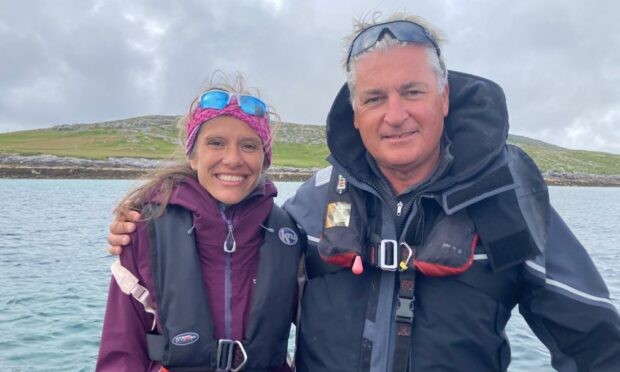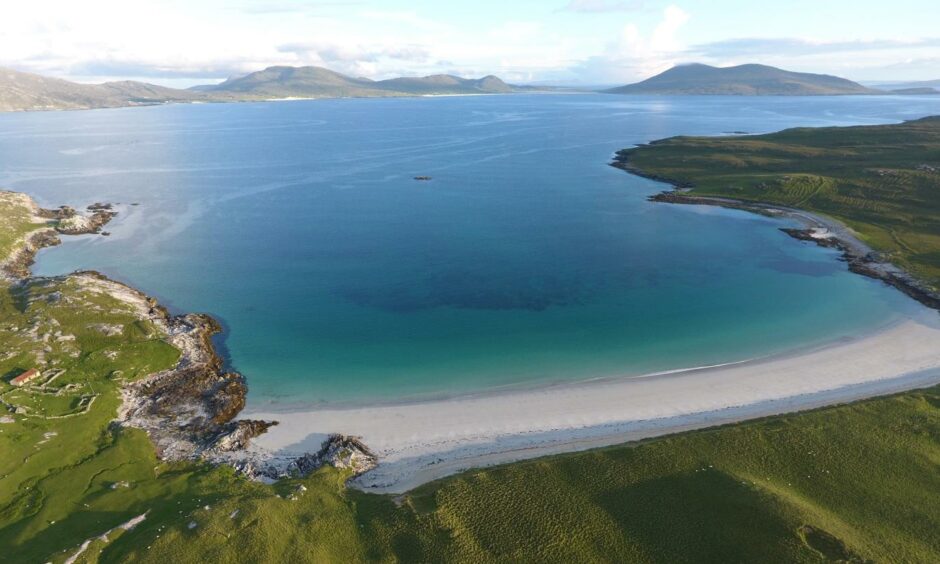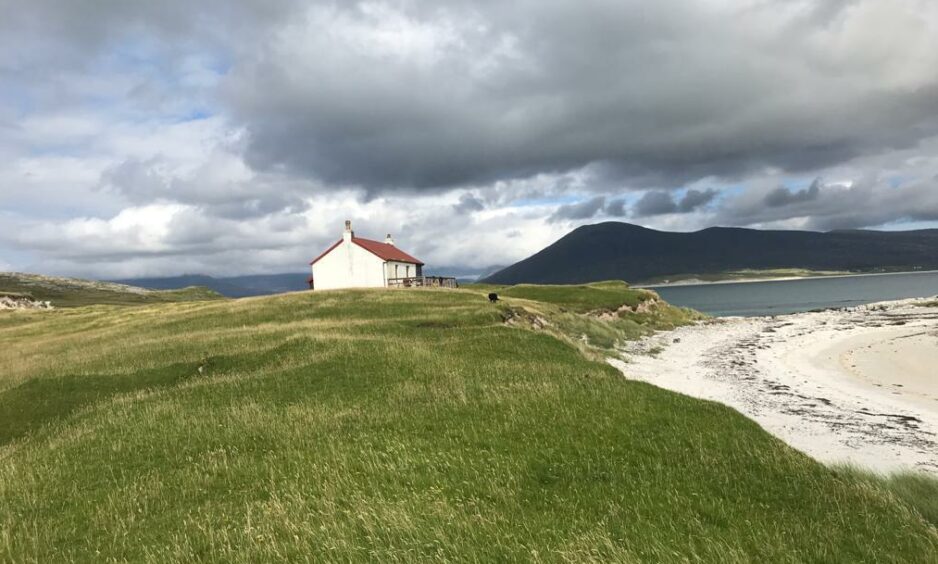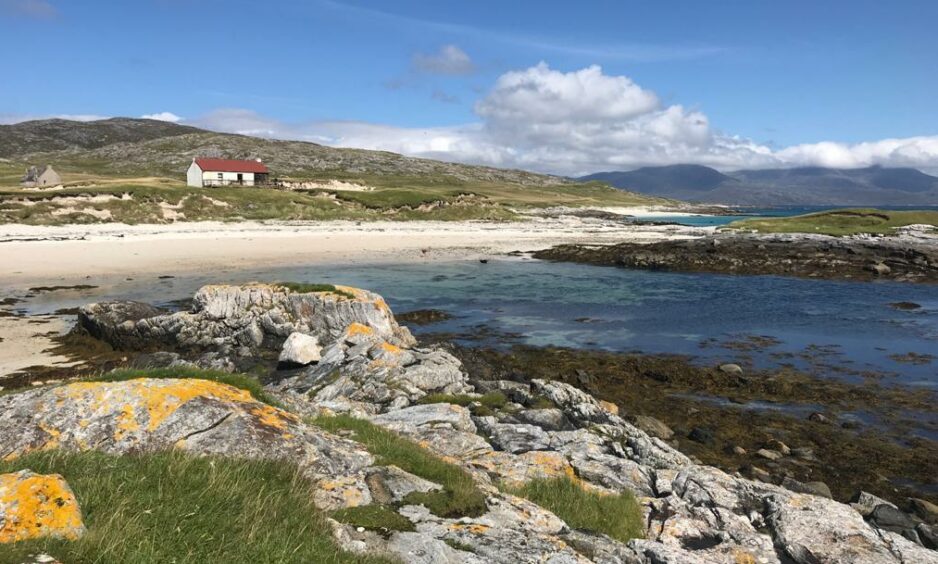When the opportunity of a lifetime presented itself to Adam and Cathra Kelliher, they didn’t hesitate for long.
Buying an island wasn’t in their plans and financially it didn’t make sense.
But instinct and emotion took over, as well as a feeling that they would regret a failure to act for the rest of their lives.
Ten years on, they exude the same awe-struck excitement about owning Taransay and their plans as guardians of the Hebridean island.
Sense of responsibility on owners
“All the good things we’ve done in life have come from the gut and definitely this is one of them,” said Cathra.
“It was not financially sensible or anything like that, but that was never the point.
“We continue to be humbled to our core that there is a piece of paper that says this is our island. But the sense of responsibility is enormous.
“There is also a sense of sharing it with the West Harris community which we feel very strongly about.
“It’s been an odyssey so far and an odyssey to come, I’m sure.”
The couple are now embarking on an ecological regeneration project – they don’t like the term ‘rewilding’ – for the uninhabited island.
It lost its last human inhabitants in 1974 but is home to 200 red deer, 12 cattle, a seal colony, seabirds and golden and sea eagles.
Taransay was sold within a few days of it going on the market in 2011.
Island was setting for Castaway series
The Kellihers faced strong competition, including, reportedly, from Ben Fogle, who took part in the BBC reality show Castaway which was set on the island.
Cathra first visited Taransay as a child 40 years ago.
Her father David Horrobin bought Borve Lodge in Harris, which looks over the sound of Taransay to the island, while setting up a research facility for a pharmaceutical company in Lewis.
Adam, who spent 14 years as a TV cameraman in war zones including Afghanistan and the Middle East, and subsequently became a life science entrepreneur, began visiting Borve when he and Cathra were engaged in 1991.
The couple later bought Borve Lodge Estate, which includes the house which was also once a base for Lord Leverhulme.
They visit Harris and Taransay as often as possible from their home in London and their four children share their passion for the area.
“When you see the sun going down and hear a red-throated diver down by the rocks, with Harris looking like a metropolis, there is nothing like it”, said Cathra.
“I can’t imagine that paradise will be any better than this.”
What’s next for the island?
So, what are the plans for Taransay?
The couple have employed experts to advise on the island’s ecology, wildlife and the planting of native trees.
Deer fences have been built and the herd will be thinned. Cattle have been introduced following the removal of sheep and it is hoped to create habitats for more nesting birds.
Cathra said: “The sheep coming off presented us with an opportunity. There was immediate regeneration of the machair and wild flowers quickly came back. But we’ve got massive grasses that need grazing.
“It’s not straight-forward and it’s layer upon layer. We can’t just leap in.
“The idea is to try to get wild vegetation to grow, provide shelter to encourage more birds.
“We are inching forwards, trying small things here and there to see what happens.
“It’s a very long-term project, but it does excite us hugely.”
Adam added: “It’s a contained ecosystem as there is no adjoining land.
“We want to get to a place where nature will run its course in terms of flora and fauna.
“Fundamentally, we want our period of stewardship of Taransay to be known for having a light footprint.
Island day trips planned
“Going headlong into it without thinking of the consequences for future generations would be irresponsible.”
The Kelliher’s vision also features plans to restore black houses on the island to include history displays to remember Taransay’s human population. More than 80 people once lived there in three villages.
It already attracts yachting and kayaking visitors and it is planned to offer day trips for locals and tourists, with interest in open spaces growing.
“The pandemic has shown that people want to leave the cities and go somewhere wild”, says Cathra.
“Tourism is very important to the local economy. But we have to balance that with a new wave of understanding about ecological land management.”
Her husband added: “We welcome visitors to the island who respect the Countryside Code. As long as they don’t leave rubbish it’s fine.
“By and large that works. People appreciate the beauty of the place and the majority do not leave a footprint.”
The perfect place to escape, but we decided against it
The estate and island would have provided the ideal escape for the family during the pandemic, but they thought better of it.
“We had everything packed, ready to go. But then we thought ‘is this the right thing to do? What would be the impact on Harris?” said Cathra.
“What if we bought it up with us? We would never forgive ourselves.
“And what if we got ill and needed medical attention? Six of us would put a lot of pressure on the local GP and medical services.
“We decided it wasn’t fair and would be selfish. That was absolutely the right decision.”



